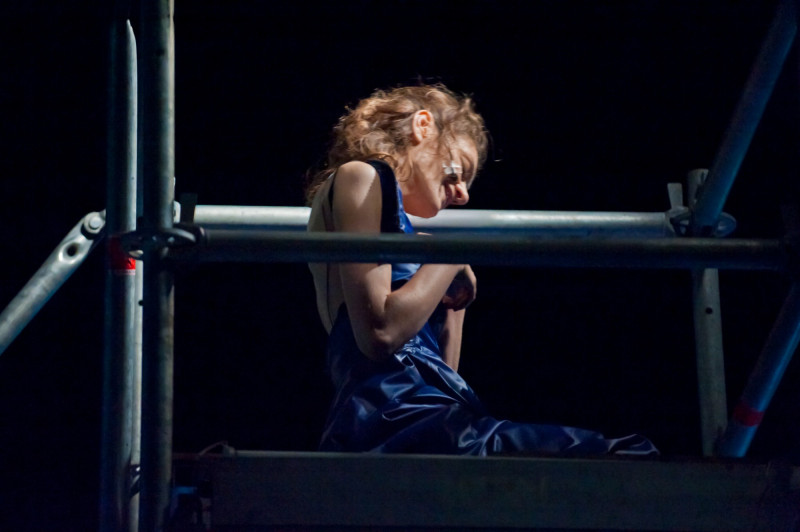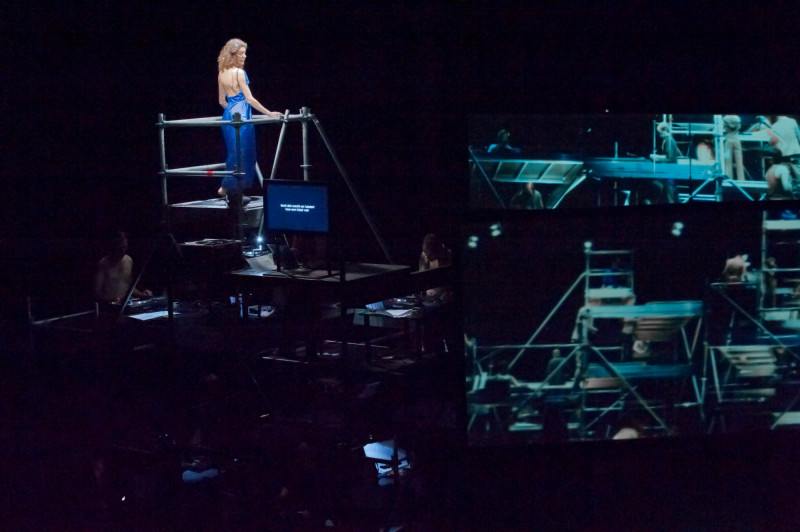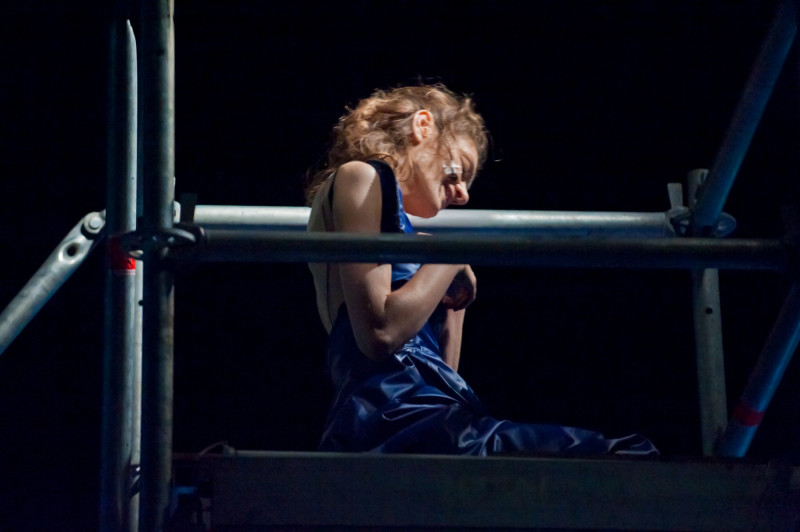UTOPIA :: 47
If the world is in ruins, what can the music of a 17th century composer do? That is the central question in Utopia :: 47 – a very last passion.
The opera/performance is a two part Passion, in which the last year of the Thirty Years’ War, 1647, is connected with the last year of a future Thirty Years’ War, 2047. Utopia :: 47 spans many centuries, from 1647 – the final year of the Thirty Years War, which dragged large parts of Europe into a bloody religious conflict – to 2047 – the final year of a future Thirty Year global conflict, which brings human civilisation to the edge of the abyss.
For centuries the beauty of spiritual music, as composed by Heinrich Schütz during the Thirty Years’ War was an ultimate harbinger of a better world. But, would we still be receptive to such an ethical appeal in these ultra-postmodern times? What passion would we profess in 2047?
Utopia :: 47 is a poignant visual and musical Passion that moves between melancholy and utopia, between a longing for beauty and sense of horror, between pure aesthetic pleasure and compelling political questions.
Eric Sleichim: direction, music and scenography
Kurt D’haeseleer: video
Max Bruckert (Grame/Lyon): electronics
Erwin Jans, Jan Vandenhouwe: dramaturgy
Isabelle Lhoas: costumes
Marnix De Cat: rehearsal director
Luc Schaltin: lighting design
Brecht Beuselinck: set design
Cristina Zavalloni: mezzo-soprano
BL!NDMAN [vox]
Griet De Geyter: soprano, turntables
Gunther Vandeven: countertenor, turntables
Tiemo Wang: bass-baritone, turntables
BL!NDMAN [sax]
Koen Maas: soprano sax, e-guitars
Roeland Vanhoorne: alto sax, e-guitars
Piet Rebel: tenor sax, e-guitars
Raf Minten: baritone sax, e-guitars
Ana Cristina Velasquez: interpreter/actress
Jonas De Roover: production and surtitles
Brecht Beuselinck: stage technique
Roel Das: sound engineering
Peter Quasters: video technique
All sounds are generated live during the performance
UTOPIA :: 47 is a production of Muziektheater Transparant & BL!NDMAN, and is commissioned by MA-festival and KlaraFestival and a co-production by MA-festival, KlaraFestival, deSingel, BL!NDMAN and Muziektheater Transparant with the cooperation of Concertgebouw Brugge, Kaaitheater Brussel, Grame Lyon.
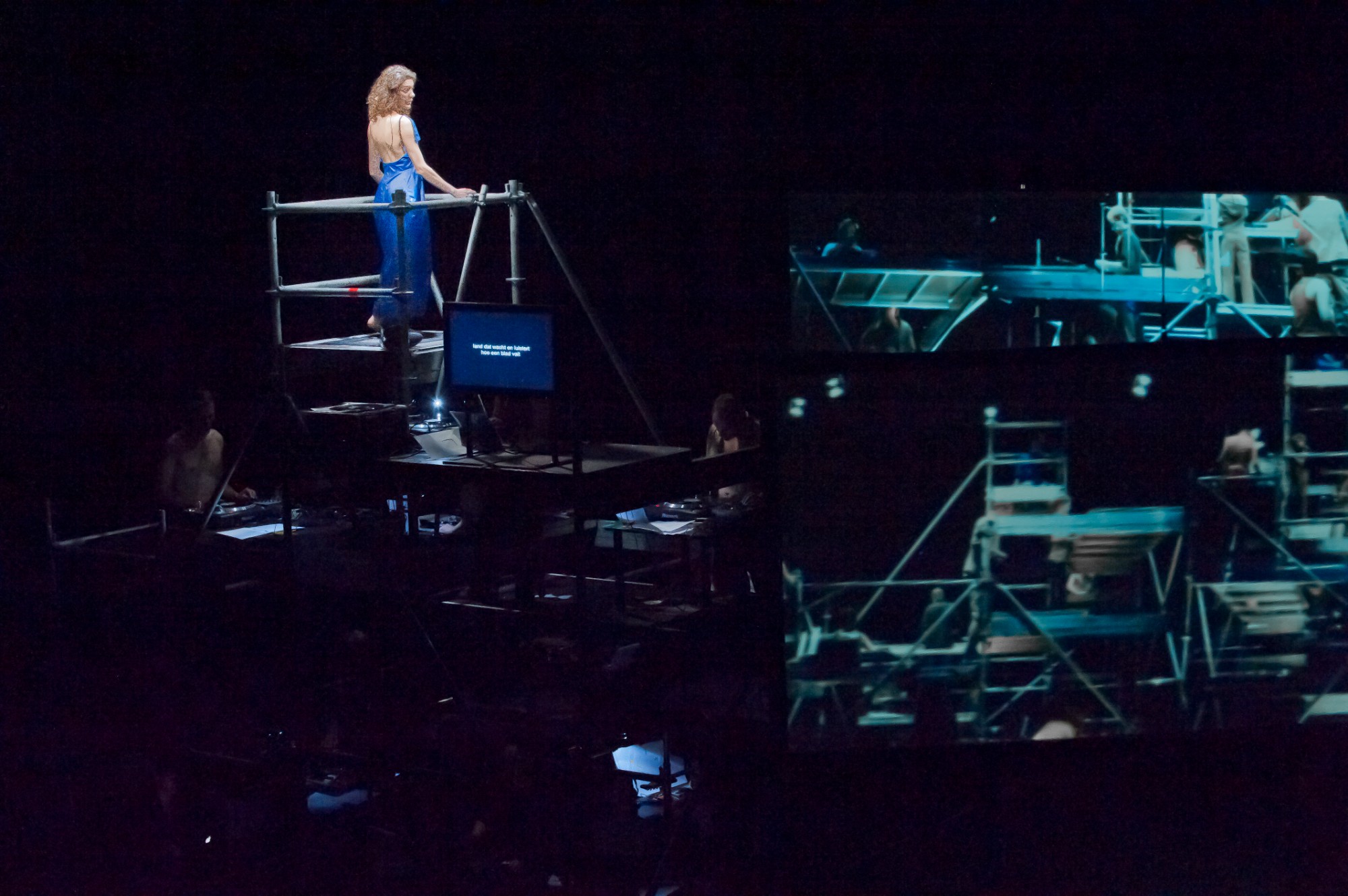
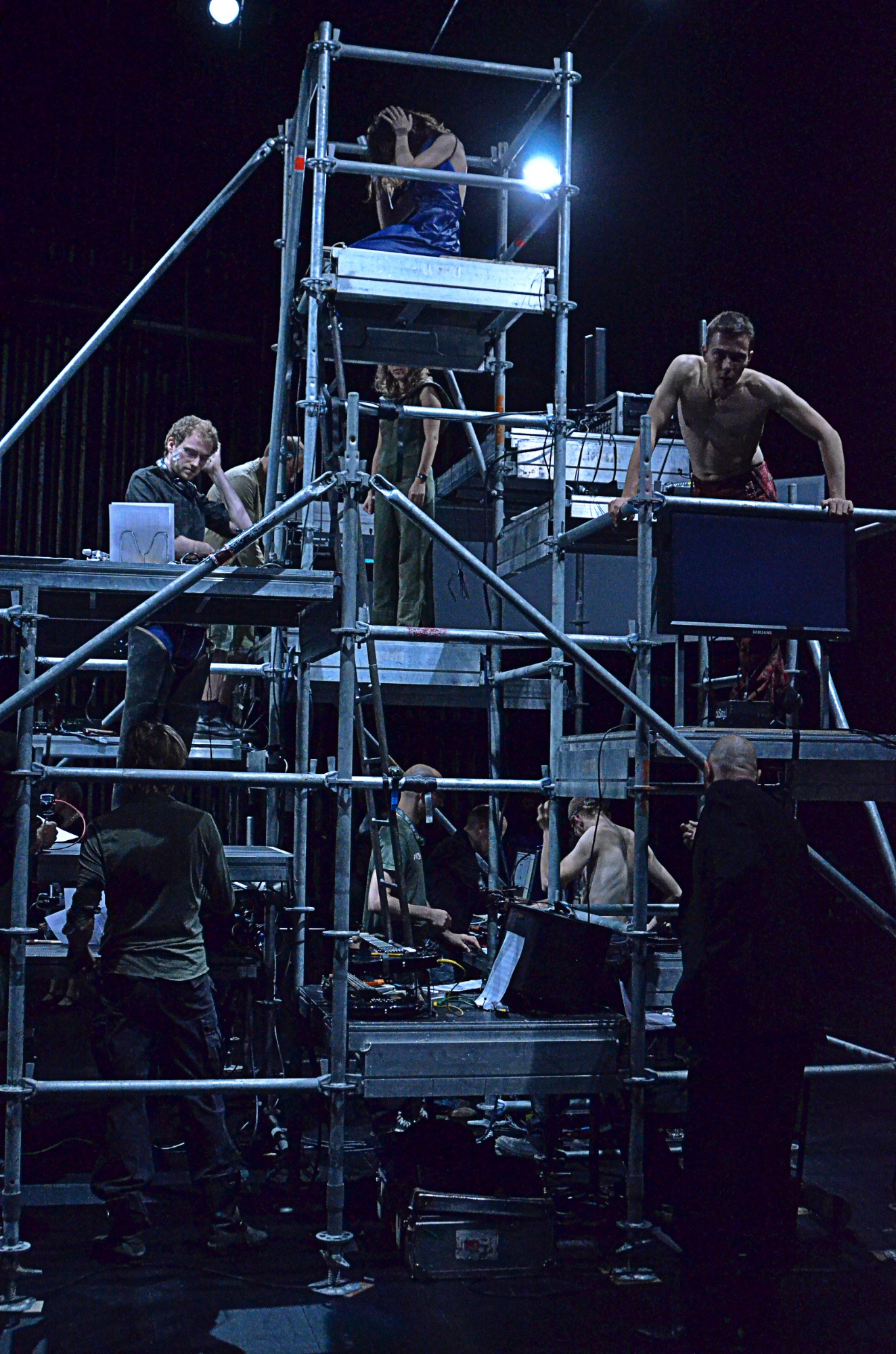

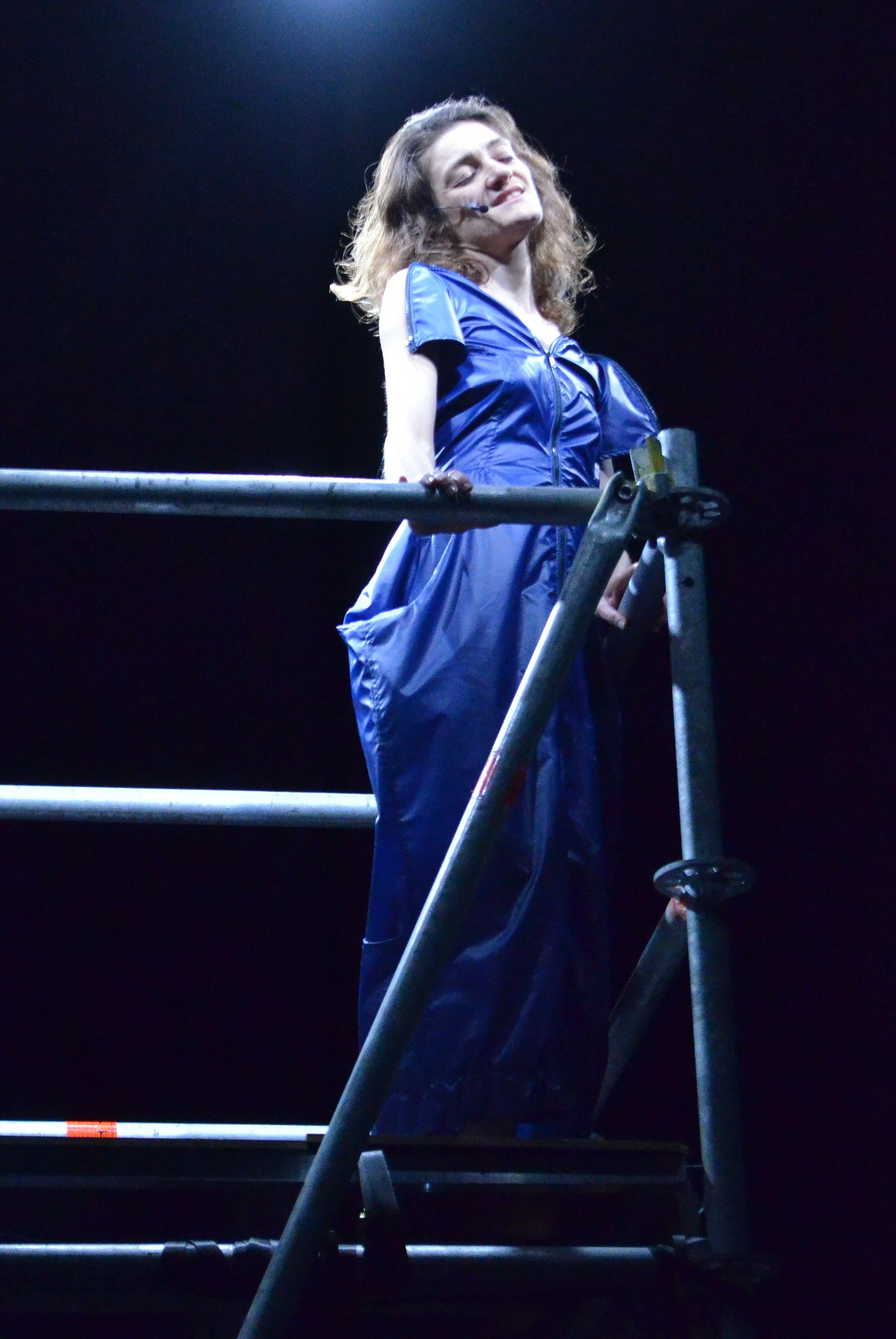
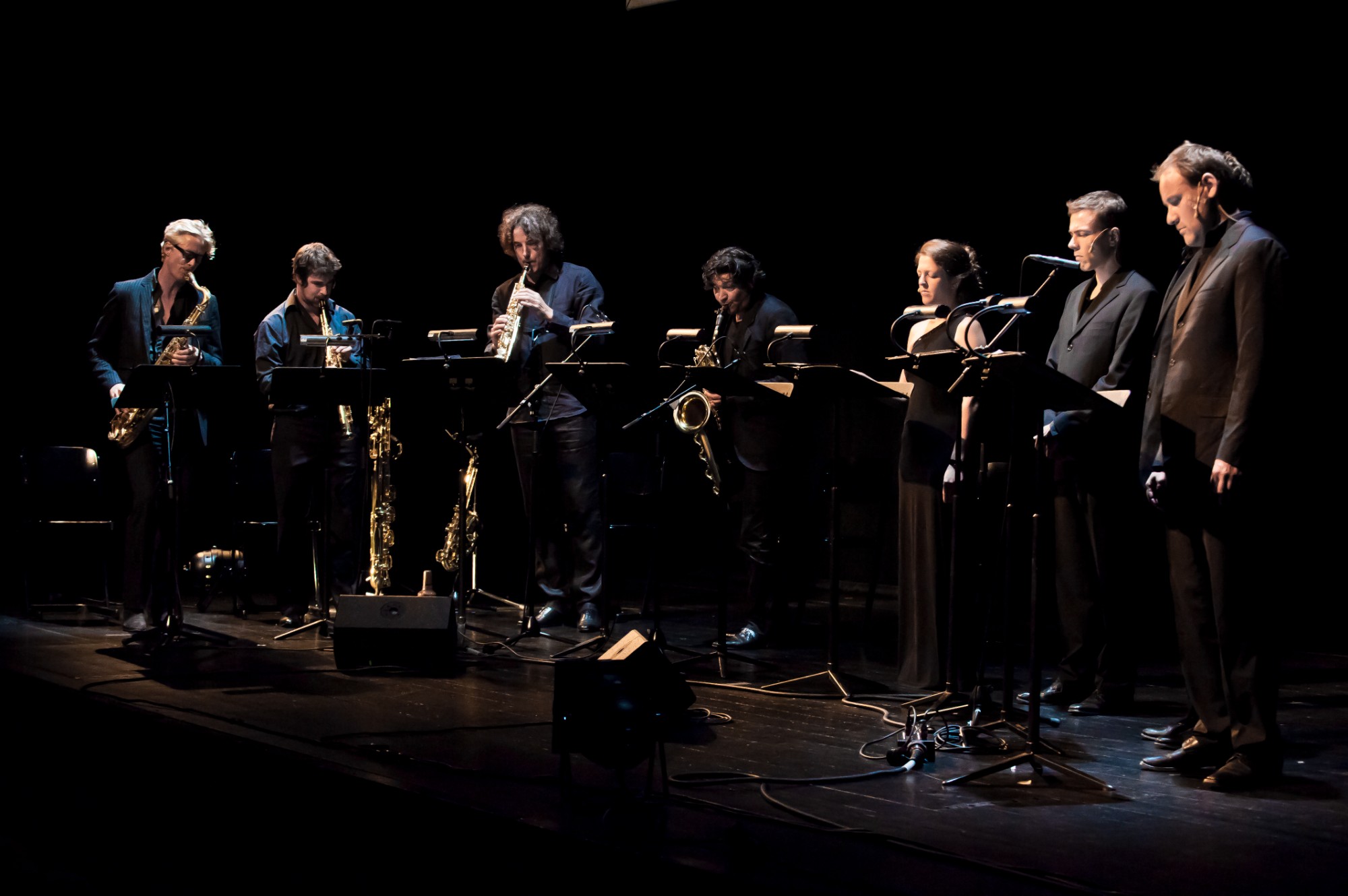
Programme
part I – 1647
H. Schütz: SWV.269: Fili mi Absalon
H. Schütz: SWV.401: Mein Sohn, warum hast du uns das getan
H. Schütz: SWV.396: Auf dem Gebirge
H. Schütz: SWV.336: Quemadmodum desiderat cervus
part II – 2047
E. Sleichim: Modulo I-II-III-IV-V-VI-VII
Agenda
About Utopia :: 47
Utopia :: 47 is a musical Passion in two parts. The point of departure of the first part is the sacred music composed by Heinrich Schütz (1585-1672) during the Thirty Years War. The beauty, poignancy and sophistication of Baroque music make it one of the highlights of Western civilisation. For centuries sacred music was the ultimate symbol of hope: the longing for another and better world. That utopian dream was reflected in the beauty and natural balance of musical harmony.
In the early twenty-first century that harmony is at risk. The Schütz concert cannot but end up in a discussion of the modern world, of politics and religion, of violence, of beauty that has burned its face. We still enjoy the exquisiteness of ‘early’ music, but do we still believe in what that music has to tell us? Are we still open to its moral appeal or does our admiration extend no further than aesthetic pleasure? Is it still possible to write a Passion for our day and age? And what remains of our utopian dream, when it is staring potential catastrophe in the eye?
In the second part those questions get a radical musical answer. 2047. What is the point of music the day after ? What remains of musical tradition? How much of the musical universe of the past can we still understand and use? How should we react to Schütz’ music? Which alienating images of the past centuries have been burned into our memory? Can a new society arise from the cultural debris? Do we continue to believe in beauty and utopia? Or does a new ‘homo ludens’ go for diversion, for endless editing, the joy of combining high and low, popular and elitist, spiritual and worldly? Not a concert anymore, but a game, a party! The Day After Party!
But slowly, the voice of a woman crystallises out of that musical violence, the story of a modern Passion, a war story that could play out in multiple locations in the world, the story of an anonymous victim, who gives a voice to a world that has barely survived. That voice brings us to the essence, to a point zero that could simultaneously be both the end and a new beginning.


